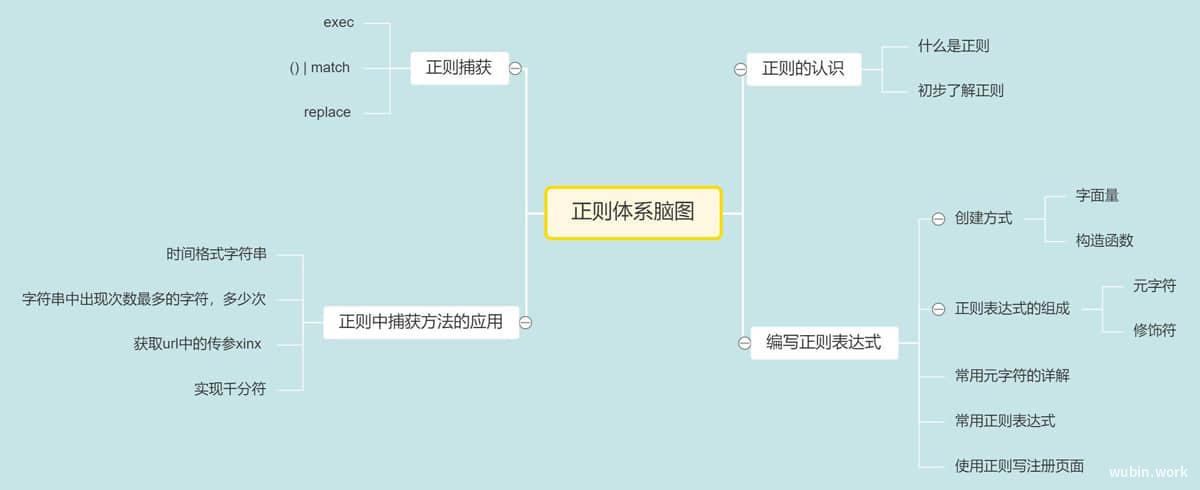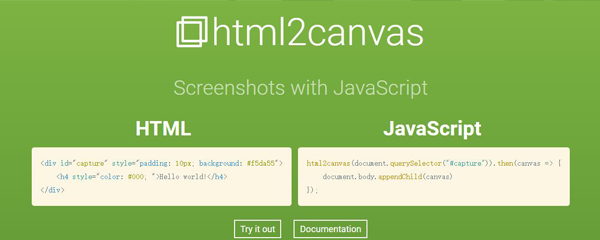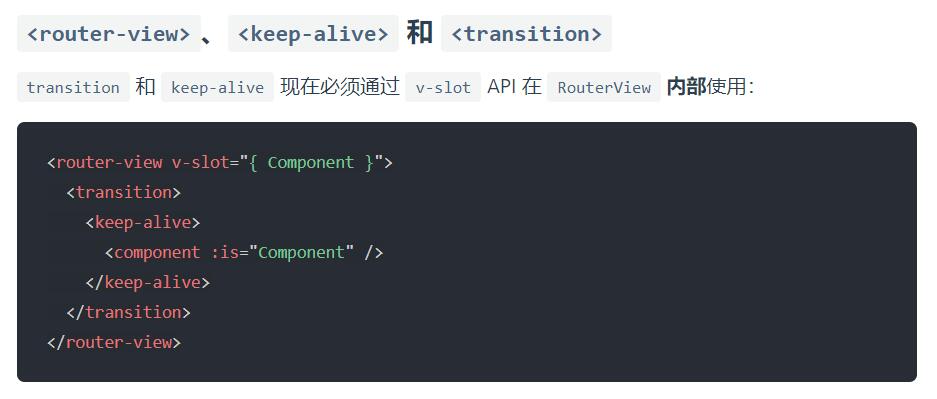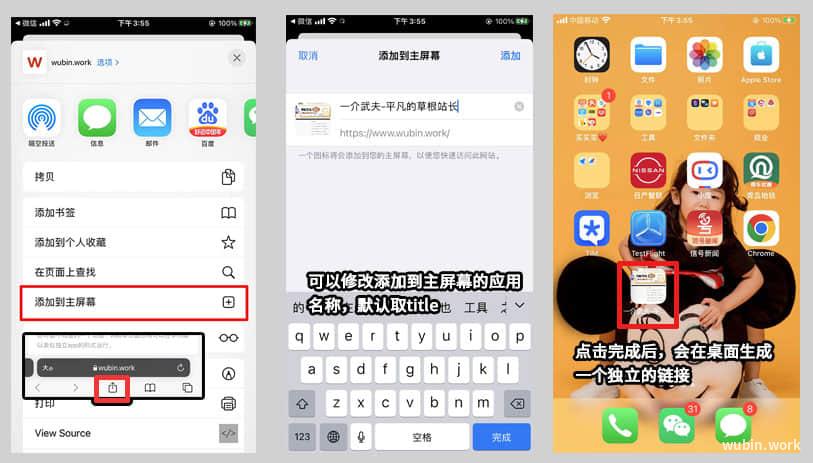fetch的用法简单介绍
使用传统的方法
那我们首先讲讲在没有fetch的时候,我们是如何获取异步资源的:
//发送一个get请求是这样的:
//首先实例化一个XMLHttpRequest对象
var httpRequest = new XMLHttpRequest();
//注册httpRequest.readyState改变时会回调的函数,httpRequest.
//readyState共有5个可能的值,
//0 UNSENT (未打开) open()方法还未被调用;
//1 OPENED (未发送) send()方法还未被调用;
//2 HEADERS_RECEIVED (已获取响应头) send()方法已经被调用, 响应头和响应状态已经返回;
//3 LOADING (正在下载响应体) 响应体下载中; responseText中已经获取了部分数据;
//4 DONE (请求完成) 整个请求过程已经完毕.
httpRequest.onreadystatechange = function(){
//该回调函数会被依次调用4次
console.log(httpRequest.readyState);
if(httpRequest.readyState===4){
//请求已完成
if(httpRequest.status===200){
//http状态为200
console.log(httpRequest.response);
var data = JSON.parse(httpRequest.response);
console.log(data);
}
}
}
//请求的网址
var url = "http://127.0.0.1:7777/list";
//该方法为初始化请求,第一个参数是请求的方法,比如GET,POST,PUT,第二个参数是请求的url
httpRequest.open('GET',url,true);
//设置http请求头
httpRequest.setRequestHeader("Content-Type","application/json");
//发出请求,参数为要发送的body体,如果是GET方法的话,一般无需发送body,设为空就可以
httpRequest.send(null);
关于XMLHttpRequest的更多用法请参照:https://developer.mozilla.org/zh-CN/docs/Web/API/XMLHttpRequest#open()
fetch
fetch是web提供的一个可以获取异步资源的api,目前浏览器支持情况caniuse-fetch,它提供的api返回的是Promise对象,所以你在了解这个api前首先得了解Promise的用法。
如果用了fetch之后,发送一个get请求是这样的:
//请求的网址
var url = "http://127.0.0.1:7777/list";
//发起get请求
var promise = fetch(url).then(function(response) {
//response.status表示响应的http状态码
if(response.status === 200){
//json是返回的response提供的一个方法,会把返回的json字符串反序列化成对象,也被包装成一个Promise了
return response.json();
}else{
return {}
}
});
promise = promise.then(function(data){
//响应的内容
console.log(data);
}).catch(function(err){
console.log(err);
})
response.json()也是个promise,所以使用时候,需要response.json().then(...)
接下来介绍下fetch的语法:
/**
参数:
input:定义要获取的资源。可能的值是:一个URL或者一个Request对象。
init:可选,是一个对象,参数有:
method: 请求使用的方法,如 GET、POST。
headers: 请求的头信息,形式为 Headers 对象或 ByteString。
body: 请求的 body 信息:可能是一个 Blob、BufferSource、FormData、URLSearchParams 或者 USVString 对象。注意 GET 或 HEAD 方法的请求不能包含 body 信息。
mode: 请求的模式,如 cors、 no-cors 或者 same-origin,默认为no-cors,该模式允许来自 CDN 的脚本、其他域的图片和其他一些跨域资源,但是首先有个前提条件,就是请求的 method 只能是HEAD、GET 或 POST。此外,如果 ServiceWorkers 拦截了这些请求,它不能随意添加或者修改除这些之外 Header 属性。第三,JS 不能访问 Response 对象中的任何属性,这确保了跨域时 ServiceWorkers 的安全和隐私信息泄漏问题。cors模式允许跨域请求,same-origin模式对于跨域的请求,将返回一个 error,这样确保所有的请求遵守同源策略。
credentials: 请求的 credentials,如 omit、same-origin 或者 include。
cache: 请求的 cache 模式: default, no-store, reload, no-cache, force-cache, or only-if-cached.
返回值:一个 Promise,resolve 时回传 Response 对象。
*/
fetch(input, init).then(function(response) { });
一个发送post请求的示例:
fetch("http://127.0.0.1:7777/postContent", {
method: "POST",
headers: {
"Content-Type": "application/json",
},
mode: "cors",
body: JSON.stringify({
content: "留言内容"
})
}).then(function(res) {
if (res.status === 200) {
return res.json()
} else {
return Promise.reject(res.json())
}
}).then(function(data) {
console.log(data);
}).catch(function(err) {
console.log(err);
});
如果考虑低版本浏览器的问题的话,引入https://github.com/github/fetch/blob/master/fetch.js即可兼容。
兼容插件fetch.js
var global =
(typeof globalThis !== 'undefined' && globalThis) ||
(typeof self !== 'undefined' && self) ||
(typeof global !== 'undefined' && global) ||
{}
var support = {
searchParams: 'URLSearchParams' in global,
iterable: 'Symbol' in global && 'iterator' in Symbol,
blob:
'FileReader' in global &&
'Blob' in global &&
(function() {
try {
new Blob()
return true
} catch (e) {
return false
}
})(),
formData: 'FormData' in global,
arrayBuffer: 'ArrayBuffer' in global
}
function isDataView(obj) {
return obj && DataView.prototype.isPrototypeOf(obj)
}
if (support.arrayBuffer) {
var viewClasses = [
'[object Int8Array]',
'[object Uint8Array]',
'[object Uint8ClampedArray]',
'[object Int16Array]',
'[object Uint16Array]',
'[object Int32Array]',
'[object Uint32Array]',
'[object Float32Array]',
'[object Float64Array]'
]
var isArrayBufferView =
ArrayBuffer.isView ||
function(obj) {
return obj && viewClasses.indexOf(Object.prototype.toString.call(obj)) > -1
}
}
function normalizeName(name) {
if (typeof name !== 'string') {
name = String(name)
}
if (/[^a-z0-9\-#$%&'*+.^_`|~!]/i.test(name) || name === '') {
throw new TypeError('Invalid character in header field name: "' + name + '"')
}
return name.toLowerCase()
}
function normalizeValue(value) {
if (typeof value !== 'string') {
value = String(value)
}
return value
}
// Build a destructive iterator for the value list
function iteratorFor(items) {
var iterator = {
next: function() {
var value = items.shift()
return {done: value === undefined, value: value}
}
}
if (support.iterable) {
iterator[Symbol.iterator] = function() {
return iterator
}
}
return iterator
}
export function Headers(headers) {
this.map = {}
if (headers instanceof Headers) {
headers.forEach(function(value, name) {
this.append(name, value)
}, this)
} else if (Array.isArray(headers)) {
headers.forEach(function(header) {
this.append(header[0], header[1])
}, this)
} else if (headers) {
Object.getOwnPropertyNames(headers).forEach(function(name) {
this.append(name, headers[name])
}, this)
}
}
Headers.prototype.append = function(name, value) {
name = normalizeName(name)
value = normalizeValue(value)
var oldValue = this.map[name]
this.map[name] = oldValue ? oldValue + ', ' + value : value
}
Headers.prototype['delete'] = function(name) {
delete this.map[normalizeName(name)]
}
Headers.prototype.get = function(name) {
name = normalizeName(name)
return this.has(name) ? this.map[name] : null
}
Headers.prototype.has = function(name) {
return this.map.hasOwnProperty(normalizeName(name))
}
Headers.prototype.set = function(name, value) {
this.map[normalizeName(name)] = normalizeValue(value)
}
Headers.prototype.forEach = function(callback, thisArg) {
for (var name in this.map) {
if (this.map.hasOwnProperty(name)) {
callback.call(thisArg, this.map[name], name, this)
}
}
}
Headers.prototype.keys = function() {
var items = []
this.forEach(function(value, name) {
items.push(name)
})
return iteratorFor(items)
}
Headers.prototype.values = function() {
var items = []
this.forEach(function(value) {
items.push(value)
})
return iteratorFor(items)
}
Headers.prototype.entries = function() {
var items = []
this.forEach(function(value, name) {
items.push([name, value])
})
return iteratorFor(items)
}
if (support.iterable) {
Headers.prototype[Symbol.iterator] = Headers.prototype.entries
}
function consumed(body) {
if (body.bodyUsed) {
return Promise.reject(new TypeError('Already read'))
}
body.bodyUsed = true
}
function fileReaderReady(reader) {
return new Promise(function(resolve, reject) {
reader.onload = function() {
resolve(reader.result)
}
reader.onerror = function() {
reject(reader.error)
}
})
}
function readBlobAsArrayBuffer(blob) {
var reader = new FileReader()
var promise = fileReaderReady(reader)
reader.readAsArrayBuffer(blob)
return promise
}
function readBlobAsText(blob) {
var reader = new FileReader()
var promise = fileReaderReady(reader)
reader.readAsText(blob)
return promise
}
function readArrayBufferAsText(buf) {
var view = new Uint8Array(buf)
var chars = new Array(view.length)
for (var i = 0; i < view.length; i++) {
chars[i] = String.fromCharCode(view[i])
}
return chars.join('')
}
function bufferClone(buf) {
if (buf.slice) {
return buf.slice(0)
} else {
var view = new Uint8Array(buf.byteLength)
view.set(new Uint8Array(buf))
return view.buffer
}
}
function Body() {
this.bodyUsed = false
this._initBody = function(body) {
/*
fetch-mock wraps the Response object in an ES6 Proxy to
provide useful test harness features such as flush. However, on
ES5 browsers without fetch or Proxy support pollyfills must be used;
the proxy-pollyfill is unable to proxy an attribute unless it exists
on the object before the Proxy is created. This change ensures
Response.bodyUsed exists on the instance, while maintaining the
semantic of setting Request.bodyUsed in the constructor before
_initBody is called.
*/
this.bodyUsed = this.bodyUsed
this._bodyInit = body
if (!body) {
this._bodyText = ''
} else if (typeof body === 'string') {
this._bodyText = body
} else if (support.blob && Blob.prototype.isPrototypeOf(body)) {
this._bodyBlob = body
} else if (support.formData && FormData.prototype.isPrototypeOf(body)) {
this._bodyFormData = body
} else if (support.searchParams && URLSearchParams.prototype.isPrototypeOf(body)) {
this._bodyText = body.toString()
} else if (support.arrayBuffer && support.blob && isDataView(body)) {
this._bodyArrayBuffer = bufferClone(body.buffer)
// IE 10-11 can't handle a DataView body.
this._bodyInit = new Blob([this._bodyArrayBuffer])
} else if (support.arrayBuffer && (ArrayBuffer.prototype.isPrototypeOf(body) || isArrayBufferView(body))) {
this._bodyArrayBuffer = bufferClone(body)
} else {
this._bodyText = body = Object.prototype.toString.call(body)
}
if (!this.headers.get('content-type')) {
if (typeof body === 'string') {
this.headers.set('content-type', 'text/plain;charset=UTF-8')
} else if (this._bodyBlob && this._bodyBlob.type) {
this.headers.set('content-type', this._bodyBlob.type)
} else if (support.searchParams && URLSearchParams.prototype.isPrototypeOf(body)) {
this.headers.set('content-type', 'application/x-www-form-urlencoded;charset=UTF-8')
}
}
}
if (support.blob) {
this.blob = function() {
var rejected = consumed(this)
if (rejected) {
return rejected
}
if (this._bodyBlob) {
return Promise.resolve(this._bodyBlob)
} else if (this._bodyArrayBuffer) {
return Promise.resolve(new Blob([this._bodyArrayBuffer]))
} else if (this._bodyFormData) {
throw new Error('could not read FormData body as blob')
} else {
return Promise.resolve(new Blob([this._bodyText]))
}
}
this.arrayBuffer = function() {
if (this._bodyArrayBuffer) {
var isConsumed = consumed(this)
if (isConsumed) {
return isConsumed
}
if (ArrayBuffer.isView(this._bodyArrayBuffer)) {
return Promise.resolve(
this._bodyArrayBuffer.buffer.slice(
this._bodyArrayBuffer.byteOffset,
this._bodyArrayBuffer.byteOffset + this._bodyArrayBuffer.byteLength
)
)
} else {
return Promise.resolve(this._bodyArrayBuffer)
}
} else {
return this.blob().then(readBlobAsArrayBuffer)
}
}
}
this.text = function() {
var rejected = consumed(this)
if (rejected) {
return rejected
}
if (this._bodyBlob) {
return readBlobAsText(this._bodyBlob)
} else if (this._bodyArrayBuffer) {
return Promise.resolve(readArrayBufferAsText(this._bodyArrayBuffer))
} else if (this._bodyFormData) {
throw new Error('could not read FormData body as text')
} else {
return Promise.resolve(this._bodyText)
}
}
if (support.formData) {
this.formData = function() {
return this.text().then(decode)
}
}
this.json = function() {
return this.text().then(JSON.parse)
}
return this
}
// HTTP methods whose capitalization should be normalized
var methods = ['CONNECT', 'DELETE', 'GET', 'HEAD', 'OPTIONS', 'PATCH', 'POST', 'PUT', 'TRACE']
function normalizeMethod(method) {
var upcased = method.toUpperCase()
return methods.indexOf(upcased) > -1 ? upcased : method
}
export function Request(input, options) {
if (!(this instanceof Request)) {
throw new TypeError('Please use the "new" operator, this DOM object constructor cannot be called as a function.')
}
options = options || {}
var body = options.body
if (input instanceof Request) {
if (input.bodyUsed) {
throw new TypeError('Already read')
}
this.url = input.url
this.credentials = input.credentials
if (!options.headers) {
this.headers = new Headers(input.headers)
}
this.method = input.method
this.mode = input.mode
this.signal = input.signal
if (!body && input._bodyInit != null) {
body = input._bodyInit
input.bodyUsed = true
}
} else {
this.url = String(input)
}
this.credentials = options.credentials || this.credentials || 'same-origin'
if (options.headers || !this.headers) {
this.headers = new Headers(options.headers)
}
this.method = normalizeMethod(options.method || this.method || 'GET')
this.mode = options.mode || this.mode || null
this.signal = options.signal || this.signal || (function () {
if ('AbortController' in global) {
var ctrl = new AbortController();
return ctrl.signal;
}
}());
this.referrer = null
if ((this.method === 'GET' || this.method === 'HEAD') && body) {
throw new TypeError('Body not allowed for GET or HEAD requests')
}
this._initBody(body)
if (this.method === 'GET' || this.method === 'HEAD') {
if (options.cache === 'no-store' || options.cache === 'no-cache') {
// Search for a '_' parameter in the query string
var reParamSearch = /([?&])_=[^&]*/
if (reParamSearch.test(this.url)) {
// If it already exists then set the value with the current time
this.url = this.url.replace(reParamSearch, '$1_=' + new Date().getTime())
} else {
// Otherwise add a new '_' parameter to the end with the current time
var reQueryString = /\?/
this.url += (reQueryString.test(this.url) ? '&' : '?') + '_=' + new Date().getTime()
}
}
}
}
Request.prototype.clone = function() {
return new Request(this, {body: this._bodyInit})
}
function decode(body) {
var form = new FormData()
body
.trim()
.split('&')
.forEach(function(bytes) {
if (bytes) {
var split = bytes.split('=')
var name = split.shift().replace(/\+/g, ' ')
var value = split.join('=').replace(/\+/g, ' ')
form.append(decodeURIComponent(name), decodeURIComponent(value))
}
})
return form
}
function parseHeaders(rawHeaders) {
var headers = new Headers()
// Replace instances of \r\n and \n followed by at least one space or horizontal tab with a space
// https://tools.ietf.org/html/rfc7230#section-3.2
var preProcessedHeaders = rawHeaders.replace(/\r?\n[\t ]+/g, ' ')
// Avoiding split via regex to work around a common IE11 bug with the core-js 3.6.0 regex polyfill
// https://github.com/github/fetch/issues/748
// https://github.com/zloirock/core-js/issues/751
preProcessedHeaders
.split('\r')
.map(function(header) {
return header.indexOf('\n') === 0 ? header.substr(1, header.length) : header
})
.forEach(function(line) {
var parts = line.split(':')
var key = parts.shift().trim()
if (key) {
var value = parts.join(':').trim()
try {
headers.append(key, value)
} catch (error) {
console.warn('Response ' + error.message)
}
}
})
return headers
}
Body.call(Request.prototype)
export function Response(bodyInit, options) {
if (!(this instanceof Response)) {
throw new TypeError('Please use the "new" operator, this DOM object constructor cannot be called as a function.')
}
if (!options) {
options = {}
}
this.type = 'default'
this.status = options.status === undefined ? 200 : options.status
this.ok = this.status >= 200 && this.status < 300
this.statusText = options.statusText === undefined ? '' : '' + options.statusText
this.headers = new Headers(options.headers)
this.url = options.url || ''
this._initBody(bodyInit)
}
Body.call(Response.prototype)
Response.prototype.clone = function() {
return new Response(this._bodyInit, {
status: this.status,
statusText: this.statusText,
headers: new Headers(this.headers),
url: this.url
})
}
Response.error = function() {
var response = new Response(null, {status: 0, statusText: ''})
response.type = 'error'
return response
}
var redirectStatuses = [301, 302, 303, 307, 308]
Response.redirect = function(url, status) {
if (redirectStatuses.indexOf(status) === -1) {
throw new RangeError('Invalid status code')
}
return new Response(null, {status: status, headers: {location: url}})
}
export var DOMException = global.DOMException
try {
new DOMException()
} catch (err) {
DOMException = function(message, name) {
this.message = message
this.name = name
var error = Error(message)
this.stack = error.stack
}
DOMException.prototype = Object.create(Error.prototype)
DOMException.prototype.constructor = DOMException
}
export function fetch(input, init) {
return new Promise(function(resolve, reject) {
var request = new Request(input, init)
if (request.signal && request.signal.aborted) {
return reject(new DOMException('Aborted', 'AbortError'))
}
var xhr = new XMLHttpRequest()
function abortXhr() {
xhr.abort()
}
xhr.onload = function() {
var options = {
status: xhr.status,
statusText: xhr.statusText,
headers: parseHeaders(xhr.getAllResponseHeaders() || '')
}
options.url = 'responseURL' in xhr ? xhr.responseURL : options.headers.get('X-Request-URL')
var body = 'response' in xhr ? xhr.response : xhr.responseText
setTimeout(function() {
resolve(new Response(body, options))
}, 0)
}
xhr.onerror = function() {
setTimeout(function() {
reject(new TypeError('Network request failed'))
}, 0)
}
xhr.ontimeout = function() {
setTimeout(function() {
reject(new TypeError('Network request failed'))
}, 0)
}
xhr.onabort = function() {
setTimeout(function() {
reject(new DOMException('Aborted', 'AbortError'))
}, 0)
}
function fixUrl(url) {
try {
return url === '' && global.location.href ? global.location.href : url
} catch (e) {
return url
}
}
xhr.open(request.method, fixUrl(request.url), true)
if (request.credentials === 'include') {
xhr.withCredentials = true
} else if (request.credentials === 'omit') {
xhr.withCredentials = false
}
if ('responseType' in xhr) {
if (support.blob) {
xhr.responseType = 'blob'
} else if (
support.arrayBuffer &&
request.headers.get('Content-Type') &&
request.headers.get('Content-Type').indexOf('application/octet-stream') !== -1
) {
xhr.responseType = 'arraybuffer'
}
}
if (init && typeof init.headers === 'object' && !(init.headers instanceof Headers)) {
Object.getOwnPropertyNames(init.headers).forEach(function(name) {
xhr.setRequestHeader(name, normalizeValue(init.headers[name]))
})
} else {
request.headers.forEach(function(value, name) {
xhr.setRequestHeader(name, value)
})
}
if (request.signal) {
request.signal.addEventListener('abort', abortXhr)
xhr.onreadystatechange = function() {
// DONE (success or failure)
if (xhr.readyState === 4) {
request.signal.removeEventListener('abort', abortXhr)
}
}
}
xhr.send(typeof request._bodyInit === 'undefined' ? null : request._bodyInit)
})
}
fetch.polyfill = true
if (!global.fetch) {
global.fetch = fetch
global.Headers = Headers
global.Request = Request
global.Response = Response
}









 目录
目录